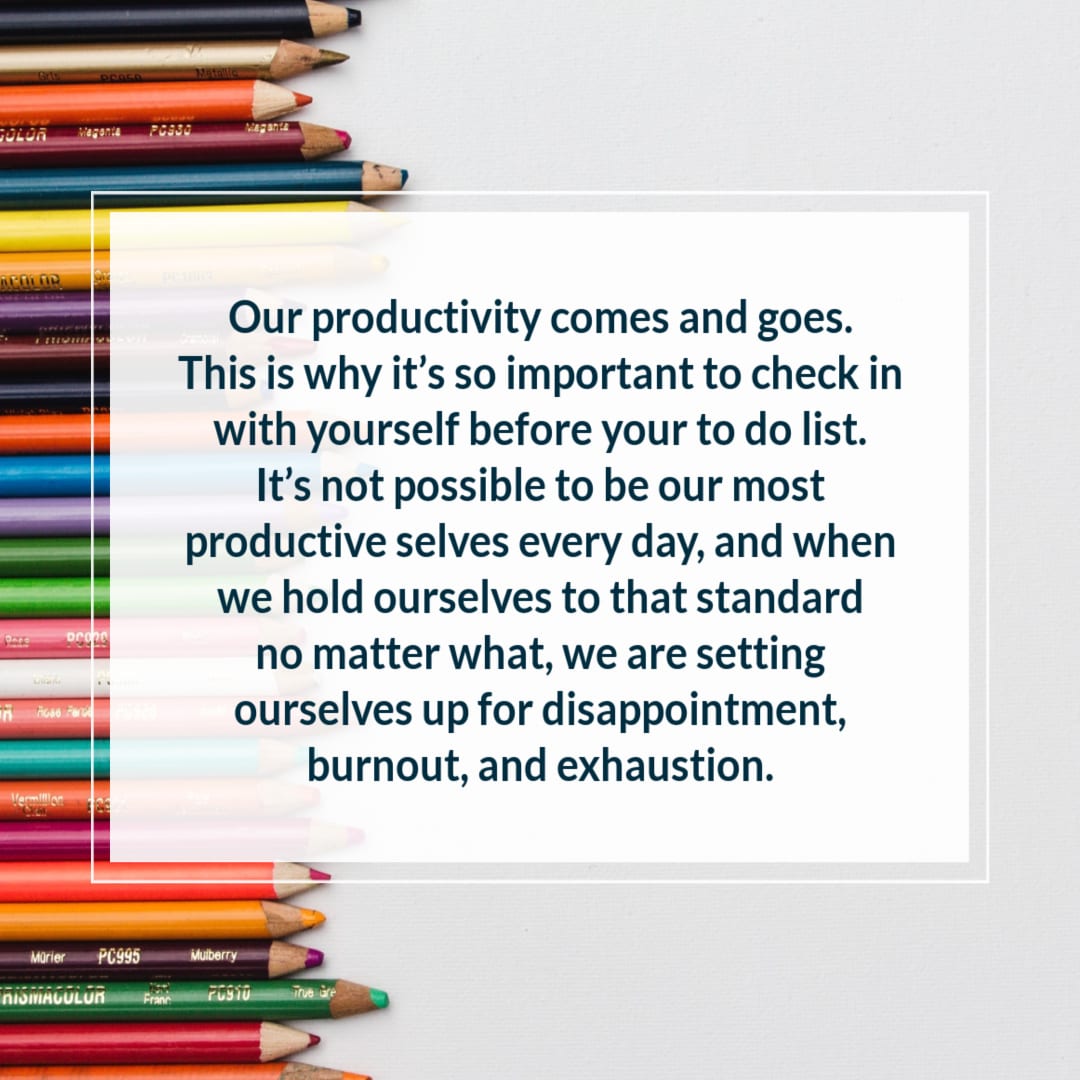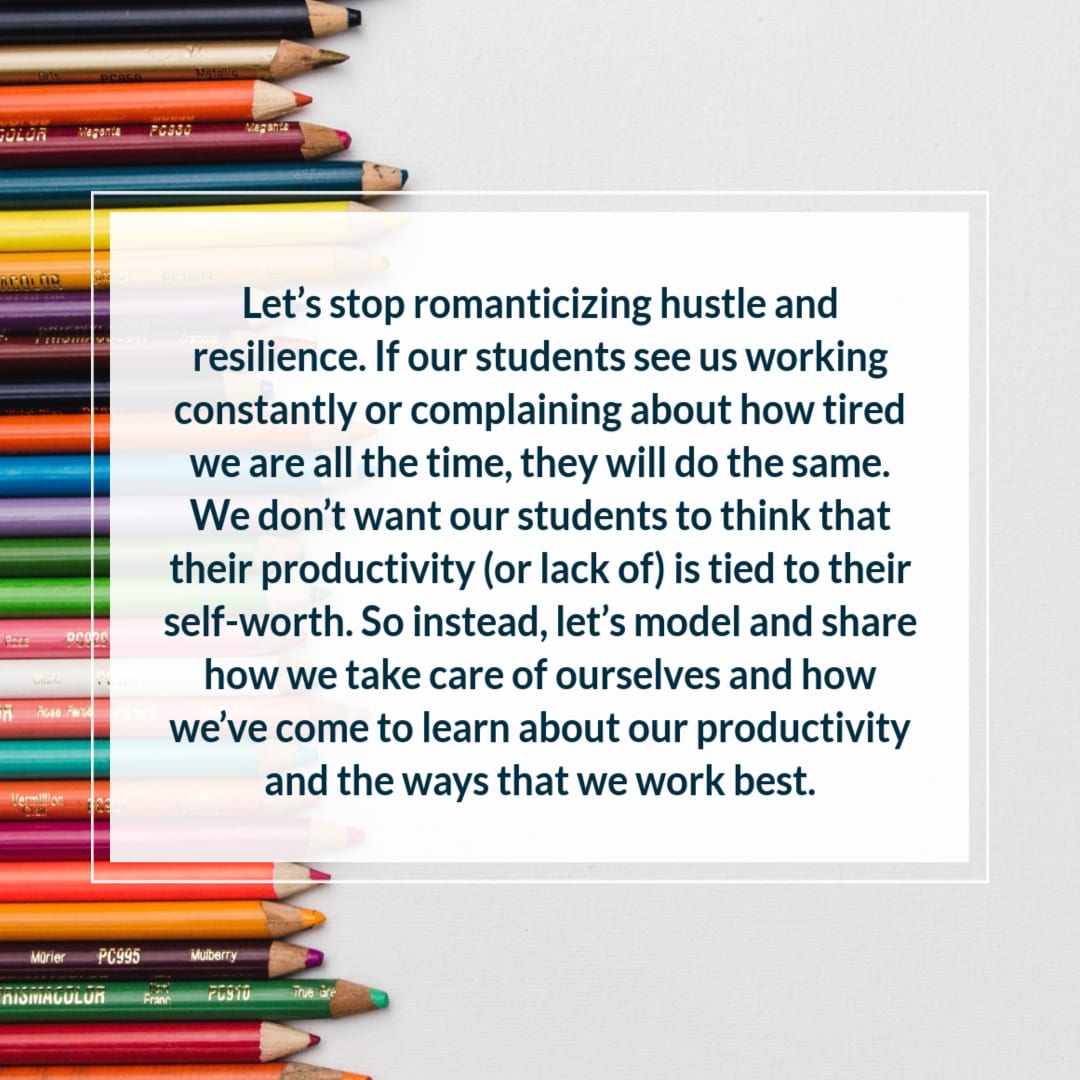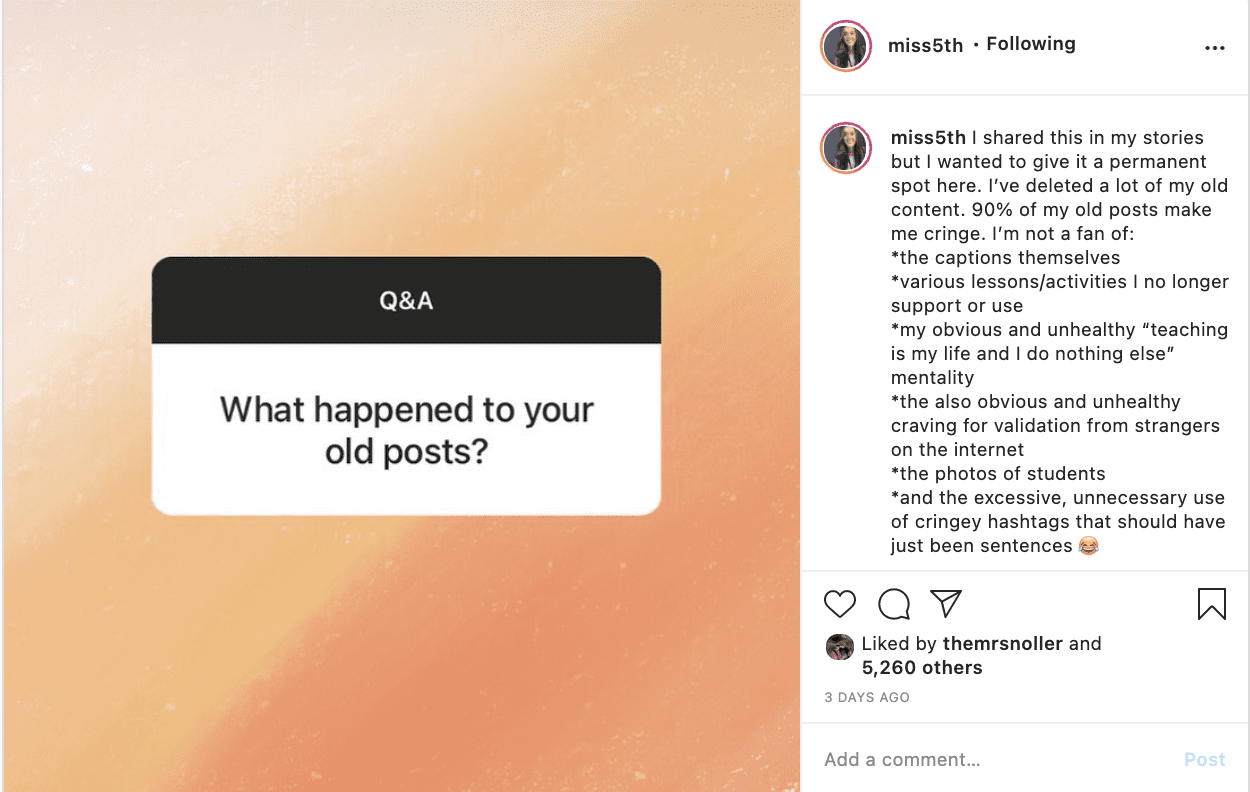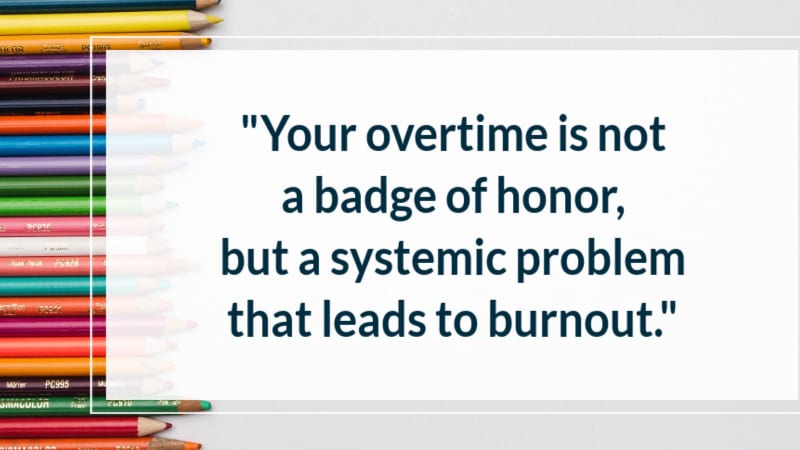Britt Root , a fifth grade teacher, is taking down posts on her Instagram. When her followers wanted to know why, here’s her response. “I shared this in my stories, but I wanted to give it a permanent spot here. I’ve deleted a lot of my old content. 90% of my old posts make me cringe. I am not a fan of my obvious and unhealthy ‘teaching is my life and I do nothing else’ mentality.”
The comments began to pour in. “Thank you for normalizing the shift that has to happen in education,” one follower said. Another wrote, “the fewer times teachers are hailed as heroes for working insane hours, the healthier the narrative will be.” There’s no question that there is a toxic narrative around teacher work and productivity. It’s time to stop wearing teacher overtime as a badge of honor.
Overworking doesn’t make you a better teacher.
There’s a toxic culture in education that associates overworking with being a good teacher. Your overtime is not a badge of honor but a systemic problem that leads to burnout. I wish we could blame it on the craziness of pandemic teaching, but we can’t. It’s a deeply ingrained narrative, and it’s time to rewrite the story. No one is saying we shouldn’t work hard. There’s no question that teaching requires hard work; it’s rare that we end the day with every item crossed off our to-do list. But we need to accept that there is always going to be more that we can do. This is why so many of us sacrifice our physical and mental health and work well beyond our contract hours. We are sprinting towards a finish line that keeps getting further away.
This is where school culture can make a big difference. If teachers are expected to stay on top of a heavy workload but have to go to meetings scheduled during their planning period, that’s not ok. If plan periods are respected, teachers have time in the school day to work and can have a better work/life balance.
[contextly_auto_sidebar]
Whether or not a teacher has their own children doesn’t mean they work more or less than you.
Here’s another toxic narrative that we need to rewrite about teaching and working. You may hear this all the time. You can’t be a really good teacher and work the way you need to when you have kids. Not true. You may have to rethink how you approach work, but it is wrong to assume that all teachers who don’t have children work more or harder than teachers who do. If anything, we need administrators who create systems that work for all teachers and that give us the flexibility we need to do our job well while also meeting our responsibilities outside of school. You never know what someone is carrying in addition to their teaching workload. Kids or no kids, we all deserve a work-life balance.
You can’t work as hard as you do on your most productive days every day.
I’ve written about this before, and I stand by the belief that we are doing ourselves, our profession, and our students a great disservice when we embrace praise like, “teachers always go above and beyond,” and “teachers are superheroes.” At the end of the day, teachers are human beings, and sometimes we get colds, don’t sleep well, or want to take a nap and binge Netflix. There are also days where we get through most of our to-do list before breakfast, plan all of our lessons for the week, and actually fold and put away our laundry.
Our productivity comes and goes. This is why it’s so important to check in with yourself before your to-do list. It’s not possible to be our most productive selves every day, and when we hold ourselves to that standard no matter what, we are setting ourselves up for disappointment, burnout, and exhaustion.

On the outside, we may wear our overtime like a badge of honor, but we will come to resent the profession we once loved.
Your admin doesn’t think you are a better teacher if you work more (and if they do, it’s time to switch schools).
I noticed that I got a lot of positive reinforcement from my admin when I got to school early and stayed late. When my admin said, “I know you can handle this” or “I thought you were the perfect person to take this on,” I believed it meant that I was one of the better teachers at my school, and I wore my teacher overtime like a badge of honor until I resented it.
Looking back on it now, I know all it meant was that I had no boundaries, and my admin knew I’d say yes to work that was outside my contract hours. My admin didn’t think I was the best teacher because I worked too much. Rather, she knew that I wouldn’t say no, so she asked me first. So, before you pull your car into the school parking lot at 6:00 a.m. or stay in your classroom until everyone else has left, ask yourself if you are making that choice because you want to or to impress an admin who has already left the building.
Comparing how much you work to your colleagues isn’t serving you or them.
Whether it is a coping mechanism or misery really does love company, we are feeding the beast when we wear our teacher overtime like a badge of honor and assume that every teacher should spend the same amount of time working as we do. We’re all different when it comes to productivity, systems, and boundaries. When you just start out, everything takes more time. This is why you shouldn’t compare your beginning to someone else’s middle. Stay in your own lane and focus on learning more about yourself and your work habits.
You can care about your kids, and not do whatever it takes.
If you choose to become a teacher, then you care about your kids. No one enters this profession to make the big bucks. No one thinks that being a teacher is going to bring fame, let alone respect. Let’s rewrite the story: If you do whatever it takes, it means that you don’t care about yourself. And if you don’t care about yourself, you can’t care for anyone else, especially your students.
Let’s stop romanticizing hustle and resilience. If our students see us working constantly or complaining about how tired we are all the time, they will do the same. We don’t want our students to think their productivity is tied to their self-worth. So instead, let’s model and share how we take care of ourselves and how we’ve come to learn about our productivity and the ways that we work best.

At the end of the day, the best thing we can do to rewrite the narrative of toxic productivity in education is to tell the truth, one social post or “no” at a time. So thanks, Britt Root, for leading the charge. I’ll leave this here, for inspiration. Now, it’s your turn.

Want more articles like these? Subscribe to our newsletter!
Plus, 15 Teachers Share How They Are Creating Boundaries Right Now.


